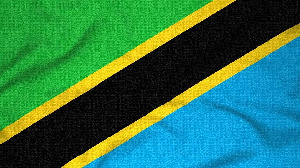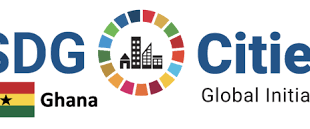Traditionally, the number of Russian tourists visiting Tanzania has been almost negligible.
The top ten sources of tourists to Tanzania include United States of America, United Kingdom, France, Italy, Germany, Spain, Canada, Australia, Ireland and Netherlands.
But Russia, which spans Eastern Europe and Northern Asia, is emerging as the outbound tourism market frontier to explore for Tanzania, bolstering the East African resource-rich country’s hope to mitigate the ripple effects of the Covid-19 pandemic.
Recently, the Tanzania Association of Tour Operators (Tato) invited a marketing – cum journalism expert from Russia at as part of its efforts to recover tourism business under UNDP support, where they charted out ways of capturing the sleeping Russian giant outbound market.
Ms Claire Vuylsteke, working with the Rossiyskaya Gazeta, a print and online media house, says Tanzania tops the lists of countries which Russian tourists are allowed to visit in the aftermaths of the Covid-19 pandemic.
Other nations in the list were Egypt, Turkey, Maldives, Greece, Tunisia, Japan, Cuba, UAE, Serbia, and Montenegro.
Tanzania Mainland and Zanzibar is currently an affordable destination offering sea and sun options, but there is intense competition in Mediterranean countries when summer begins in Europe, she explains.
Ms Vuylsteke encouraged Tato members to consider embarking on their marketing blitz in Russia in June as well as between September and November each year.
“Strategic timing will not only attract high profile Russian travelers for the forthcoming 2021 high season, but also make both Tanzania Mainland and Zanzibar their first choice destination,” said Ms Vuylsteke, adding:
“The momentum is ideal for both Tanzania Mainland and Zanzibar to maximize their image as a high-end destination,” Ms Vuylsteke stressed.
Tato’s chief executive officer, Mr Sirili Akko, was optimistic that chartered flights and the anticipated Air Tanzania scheduled flight to Moscow would help to secure arrivals of customers looking for luxury experiences.
Ms Vuylsteke said with a population of 146.7 million people, Russia, the 9th populace country globally was one of the fastest-growing outbound markets in the world.
“In 2019, Russia ranked 5th globally with the highest number of billionaires after the US, China, Germany, and India,” she said.
Russians made 48, 072, 285 trips to 176 foreign countries and territories during the year, equivalent to 31 percent growth compared to 2018.
Russian tourists’ spending on travel rose by 15 percent in 2019, overtaking China and Southeast Asia. This implies that it has grown by 10 percent compared to the seven percent growth of America.
“In total, Russia travellers spend over $40 billion, the highest amount than any other country in the world,” she said.
While 76 percent of Russians are willing to take new trips, 48 percent have the desire to see the world. Nearly 3 million Russian tourists traveled abroad in 2020.
A Russian spends an average of $1,676 per foreign holiday trip, higher than a European’s $1,174. While at the destination, he stays for an average of 10 nights, two nights longer than the global average.
A Russian travels 4.3 trips per year on average, distributing 51 percent of his expenditure on transport and accommodation prior to the trip and the reminder on services in offer at the destination.
“It is important to adapt the local offer to the amount the traveler will have spent before the trip,” Ms Vuylsteke stresses.
About 70 percent of Russian tourists use bankcards when they plan their trip with barely 17 percent of them using automated teller machines (ATMs) abroad, compared to 17 percent of European tourists.
“It is important to offer online payment and card payment solutions,” says Ms Vuylsteke, adding that 51 percent of Russian tourists use agencies while the remainder prefers self-booking.
About 34 percent of Russian tourists book six months before their trips, 19 percent between three and six months before, 47 percent three months before, including 18 percent last minute.
Russian tourists travel, stay longer and spend much when children are on holiday between June and August and during New Year and Orthodox Christmas from December 31 to January 10.
About 56 percent of Russians are ‘in general’ not afraid of Covid-19, including 31 percent of them who are ‘definitely not afraid at all’.
On their way back home, Russians are required to have a polymerase chain reaction (PRC) test for their entry to be allowed.
About 77 percent of Russian tourists take more precautions due to the pandemic while 51 percent avoid traveling to certain destinations they consider unsafe.
About 71 percent of Russian tourists would only book an accommodation option if they were provided with detailed information on health and safety measures. About 69 percent would prefer accommodation facilities furnished with the latest technological solutions to help guests feel safe.
“It’s important to digitalize your offer and maximize online presence while maintaining flexibility,” says Ms Vuylsteke, explaining that 56 percent of Russian tourists would like to acquaint themselves with their future accommodation facility using virtual reality technologies before traveling.
Ms Vuylsteke cautions the Tato members that 61 percent of Russian tourists pay more attention to prices when planning a trip while 64 percent of them follow special offers and promotions.
She says 82 percent of Russian tourists expect more transparency from online booking platforms regarding the cancellation, refund, and insurance policies.
“Refunds on cancellations are extremely important to about 60 percent of Russian tourists, with 28 percent of them wanting to be able to change their dates of stay for free,” she explains.
 Home Of Ghana News Ghana News, Entertainment And More
Home Of Ghana News Ghana News, Entertainment And More





